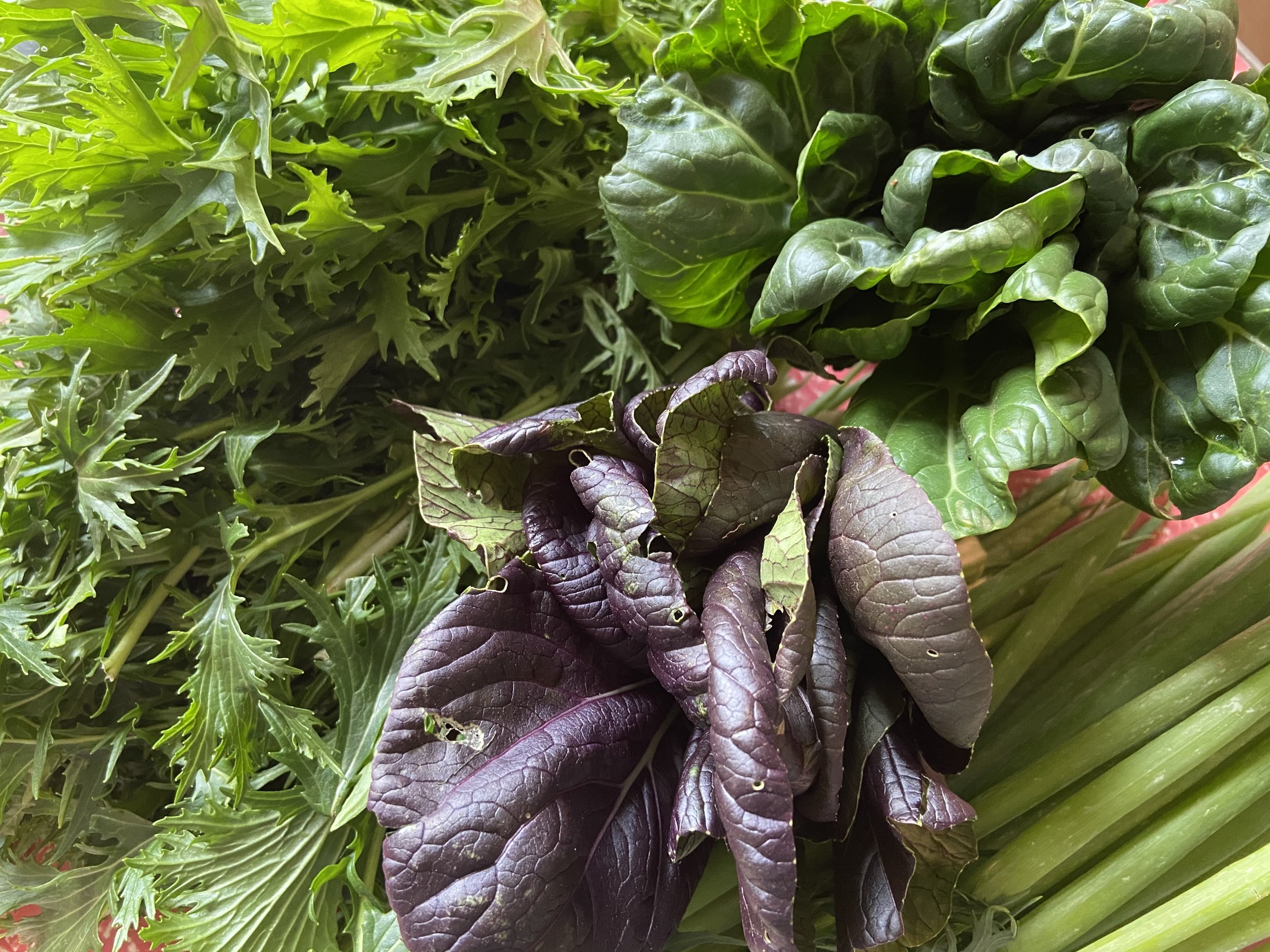Vegetarian or Plant-Based Diet for Vitalty: 10 Tips
A Selection of winter root veggies from the Coburg Farmer’s Market
Eating a plant-based or vegetarian diet takes a little more care and thought than an omnivore’s diet. If you’re not eating meat, the key to getting all the nutrients you need lies in variety. It’s important to include all the food groups; vegetable, wholegrains, legumes, dairy, nuts, seeds and fruit, and to explore widely within these groups. Many of us tend to stick to our comfort foods – things we like that we know how to prepare quickly and easily. In order to truly experience vital health, it’s important to branch out, experiment, and discover what each of our wonderful, unique bodies requires. So go forth and graze widely!
#1 Eat 50 – 70% Vegetables
Yes, 50-70%! It’s always very surprising to us at the clinic how many of our clients don’t eat enough veggies. We can’t stress it enough – eating a vegetable-rich diet is vital for everyone’s health. Explore widely in all the vegetable groups; leafy greens, brassicas, root vegetables, fresh legumes, fruiting vegetables, mushrooms and herbs. The quality of the veggies you are choose is important too – the more sustainably they have been grown the more nutrient-rich they will be, but that’s not all; they will be far tastier than your average supermarket veg and will be way more exciting to eat.
#2 Green leafy vegetables are the most important!
Everyone needs to eat leafy greens, at least once a day and preferably more often. Green leafy vegetables are the most important food for supporting the blood. They provide vital minerals and nutrients, and have a cleansing effect on the blood. They will keep you cool, calm and refreshed.
Think beyond the raw lettuce salad and don’t be afraid to try veggies you’ve never eaten before. Have a go at cooking nettles, rapa, mizuna, mustard greens, chicory, endive, raddichio, watercress, sorrel and the huge variety of Asian greens on offer. For those needing to boost their iron intake, eat spinach, parsley and nettles often.
A selection of Asian greens; mizuna, purple tatsoi and bow choi
#3 Incorporate seaweed broth
Seaweed is an essential blood-supporting food for those who don’t eat animal products regularly. Seaweed comes in many fantastic forms, but it is most easily digested as a broth, soup or stock. Check out recipes for kombu and shitake broth. It can be used in many delicious Japanese recipes and is the base for vegetarian miso soup. Or add a strip or two or kombu to your next veggie stock. Keep a good supply of stocks in the freezer so you always have some on hand for making soups and stews.
#4 Fermented Foods
Fermented foods are a fantastic inclusion to any diet because they support a healthy gut biome. Fermented vegetables are very high in B12, a vital, energy-giving nutrient that is often low in vegetarians. There are so many exiting fermented foods out there. Try tempeh, miso, kimchi, sauerkraut, tamari, kimchi, sauerkraut, Japanese pickles, and the vast array of other fermented veggies options on offer. For those who are sensitive to dairy, yoghurt and cultured butter are more digestible dairy option.
Preparing purple cabbage sauerkraut
#5 Healthy fats
Healthy fats are vital for health. They support heart health and provide the building blocks for hormone production. Eating a moderate amount of butter, ghee and eggs can be very useful. Be sure to choose grass-fed dairy products, and eggs from hens that have had the pleasure of a truly free-range pasture where they can nibble grass and other vegetation all day long. Omega 3 fatty acids are found in higher quantities in grass-fed dairy. Useful plant-based fats include olive oil, avocado, coconut, nuts and seeds.
#6 Dried Pulses
Dried pulses (also known as dried legumes) are often a vital part of a vegetarian diet as a source of protein. Include a wide variety in your diet including kidney beans, adzuki bean, red lentils and black beans.
It’s important to prepare dried pulses with care to avoid digestive symptoms such as gas, bloating, cramping or loose bowel movements. Soak pulses overnight before cooking them, and throw away the soaking water. Soaking removes undigestible phytates, and makes the nutritional components easier to absorb. We also recommend cooking pulses with healthy fats, such as ghee, to moisten the digestive tract, and aromatic spices such as cumin, coriander, cardamon, fennel, cinnamon, ginger to stimulate the digestion.
#7 Red Fruits
Use red fruits to add a blood-nourishing pop of sweetness to your life. Try fresh berries, dates, goji berries and cherries. Remember that fruit, with its high sugar content is a moderation food. Eat fruit in small portions away from meals for maximum digestive comfort.
#8 Raw isn’t always better
Raw veggies are hard work for the digestion. They take way more energy and body heat to process than cooked veggies. People who are already tired may not have the digestive fire to chew through vast amounts of raw vegetable matter and can be left feeling exhausted and heavy after eating. Generally speaking, we recommend supporting your digestive fire by cooking about 80% of your vegetable intake and having 20% fresh.
#9 Respect the earth, respect your body
Many people are choosing a plant-based diet because of a heartfelt desire to take care of the earth, and that is a wonderful thing. What I would like to remind you is that you are an integral part of this beautiful earth; you are a part of nature. And you deserve the same respect, care and nourishment you would wish for the mountains, oceans, rivers, whales, bees and forests. Show this respect for yourself by taking great care to get the nourishment you need by putting care, time, love and thought into what you eat, making sure it suits your needs and gives you the fuel to live a healthy, full life.
#10 Listen to your body
A well-balanced diet will have your body singing with health. You should feel light, energized and ready to enjoy life after a meal. Look out for these signs of vitality as you experiment with new foods and recipes – your body will let you know when its needs are being met and reward you with a clear head, a zest for life as well as the ability to enjoy relaxation and to sleep deeply.
If you are experiencing digestive discomfort, don’t ignore it. Symptoms such as reflux, bloating, nausea, irregular bowel movements or even changes in mood suggest that a diet rethink might be in order. It’s important to address digestive symptom before they become chronic and begin to affect the absorption of nutrients.



